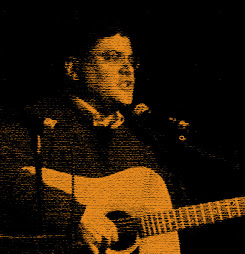
In the moments before their b’nei mitzvah, long time Sinai congregant Laura Waisbren told her children: “There are just a few times in life you get to have your entire world assembled before you for a celebration.” At the whirlwind of Michael and Sophie’s becoming b’nei mitzvah yesterday begins to subside, I now see just how wise those words truly are.
On Sunday, my mother shared with me a synagogue bulletin article I had written just after I celebrated becoming bar mitzvah. Reading my own pre-adolescent words, I was struck by how eerily they captured sentiments I hold dear even today.
Yet, those early thoughts challenged my own sense of life-narrative. When people ask when I decided to become a rabbi, the story usually begins at sixteen, when I spent half a year in Israel as a high school exchange student. In light of this now uncovered article I wrote at thirteen, it may well be time to reexamine that assumption! At the risk of self-plagiarizing, permit me to share it with you:
“BETTER THAN CHICKEN SOUP - by David Cohen
Most people think they would probably enjoy the rabbi's job. The fact is that there is a lot more to being a rabbi than conducting services, socializing at the Oneg Shabbat, being a leader, and attending a variety of meetings. There is a lot more.
A few weeks ago Debra Fields (ed. The rabbi’s daughter) and I had the opportunity of observing one of the less joyous tasks of a Rabbi. The Junior Youth Group had made New Year's greetings for the hospital patients, and the two of us went with Rabbi Fields and Rabbi Rosenberg to distribute them.
When we arrived at Middlesex Hospital, I was scared. Not that anything was to go wrong, but I did not know what to expect. The first room we came to, I said to myself - "Well, here goes." We stepped in and the Rabbi introduced me and then himself. He told the patient that we were from Anshe Emeth (Synagogue) and that I was a representative of the Junior Youth Group. Suddenly, it was time for my big line. I said "Happy New Year" and that I hoped she was feeling better. She thanked me and we left. Gee, this was easier than I thought! Many of the patients were very appreciative of the time and effort that went into the greetings cards we handed out. One man was even too touched to speak. Another elderly woman said "they were more beautiful than a Rembrandt" and then she added "and I have seen a Rembrandt." The Rabbi later told me it was not the quality of the artwork that made her say that.
Throughout the trip I felt that I had never before known what the Rabbi does during the week. Many patients had said that the only person besides their families to visit them was their spiritual leader.
On leaving each room I realized how good it felt doing things for other people. Even at the end, however, I felt an uneasiness -going into someone's hospital room. At one point, for instance, we were in a man's room and I had said something and he just stared at me. The Rabbi sensed something was wrong and continued the conversation. What a lifesaver! I was about to collapse right on the spot.
I felt very good about the whole trip after it was over. I was very proud of myself and the projected effort made by our Temple to perform Mitzvoth.
While many of the things we do are important, nothing compares to getting out to accommodate the needy. I think all the members of our Youth Group are worth their weight in Jerusalem stone when they work to make something for the needy or disabled. Not only that, but their cards were the best medical treatment since chicken soup!
About a week later, I unexpectedly had the opportunity to be on the receiving end of this same mitzvah. Lady luck had struck again, and guess who became a patient in the hospital - Me! How the tables have turned. I could now understand the feeling of being alone in a hospital, although not for long. Like the nice guy the rabbi is, he found out and came right over to visit me. Nevertheless, while everyone is very nice, a patient can't help being a little scared, for it can pretty lonely, especially at three in the morning. I was lucky, for during the day I had lots of visitors. Even though my medicines made me tired, I was still very happy to have them, for I remembered that many of the elderly had no visitors at all and were really lonely.
I hope the Junior Youth Group will be thoughtful enough to deliver some of their "Rembrandts" again. They are cheaper than medicine, and make the patients feel so good!
(Synagogue Bulletin editor's note: 13 year-old David Cohen lives in East Brunswick, and has just celebrated his Bar Mitzvah. We predict he will not only be a great Rembrandt, but a Sholem Aleichem as well!). “
Well, history reveals that the Rembrandt prediction was way off base, but I like still tell stories, some even by Yiddish author Sholem Aleichem.
Should my seventh grade essay inspire you to consider doing a mitzvah, our Chesed Committee arranges for congregants to visit other homebound congregants. Please consider doing the mitzvah of “Bikur Cholim”, which though it’s often translated as “Visiting the Sick”, it also means spending time with those who are lonely and could use some human companionship. It would make a tremendous difference for someone in our community.
Julie joins me in hoping that 5759 is a wonderful year for you and yours,
Rabbi David B. Cohen
( David B. Cohen, age eleven, won a set of World Book encyclopedias, from the syndicated columnist, "Ask Andy.")


No comments:
Post a Comment